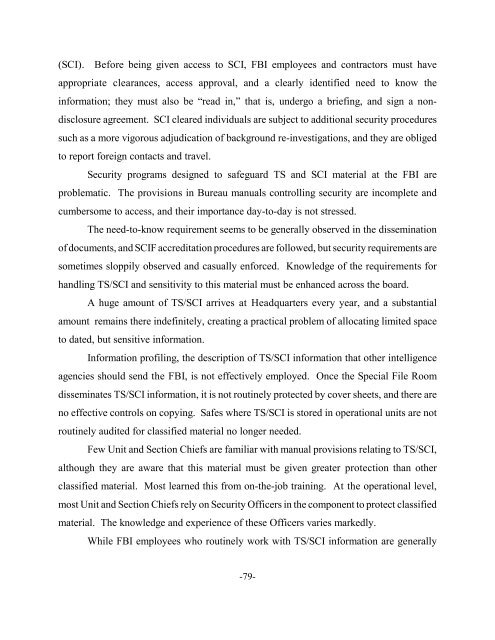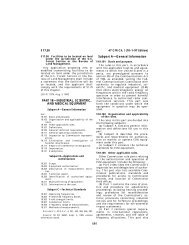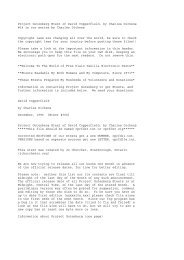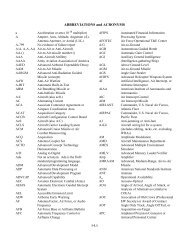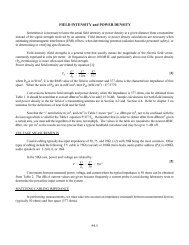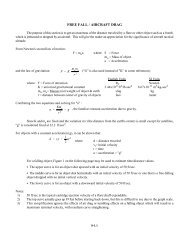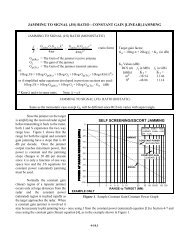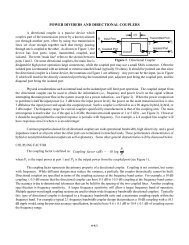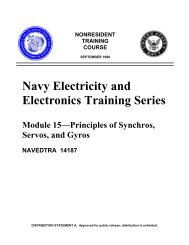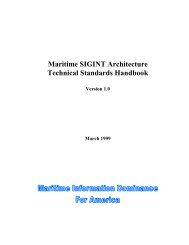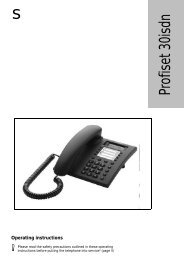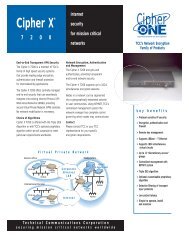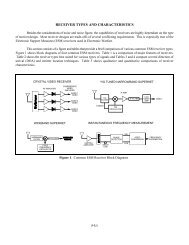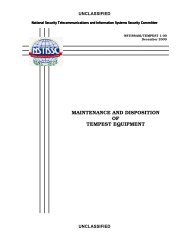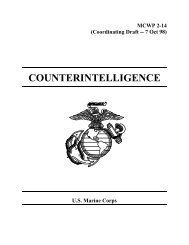A Review of FBI Security Programs
A Review of FBI Security Programs
A Review of FBI Security Programs
You also want an ePaper? Increase the reach of your titles
YUMPU automatically turns print PDFs into web optimized ePapers that Google loves.
(SCI). Before being given access to SCI, <strong>FBI</strong> employees and contractors must have<br />
appropriate clearances, access approval, and a clearly identified need to know the<br />
information; they must also be “read in,” that is, undergo a briefing, and sign a nondisclosure<br />
agreement. SCI cleared individuals are subject to additional security procedures<br />
such as a more vigorous adjudication <strong>of</strong> background re-investigations, and they are obliged<br />
to report foreign contacts and travel.<br />
<strong>Security</strong> programs designed to safeguard TS and SCI material at the <strong>FBI</strong> are<br />
problematic. The provisions in Bureau manuals controlling security are incomplete and<br />
cumbersome to access, and their importance day-to-day is not stressed.<br />
The need-to-know requirement seems to be generally observed in the dissemination<br />
<strong>of</strong> documents, and SCIF accreditation procedures are followed, but security requirements are<br />
sometimes sloppily observed and casually enforced. Knowledge <strong>of</strong> the requirements for<br />
handling TS/SCI and sensitivity to this material must be enhanced across the board.<br />
A huge amount <strong>of</strong> TS/SCI arrives at Headquarters every year, and a substantial<br />
amount remains there indefinitely, creating a practical problem <strong>of</strong> allocating limited space<br />
to dated, but sensitive information.<br />
Information pr<strong>of</strong>iling, the description <strong>of</strong> TS/SCI information that other intelligence<br />
agencies should send the <strong>FBI</strong>, is not effectively employed. Once the Special File Room<br />
disseminates TS/SCI information, it is not routinely protected by cover sheets, and there are<br />
no effective controls on copying. Safes where TS/SCI is stored in operational units are not<br />
routinely audited for classified material no longer needed.<br />
Few Unit and Section Chiefs are familiar with manual provisions relating to TS/SCI,<br />
although they are aware that this material must be given greater protection than other<br />
classified material. Most learned this from on-the-job training. At the operational level,<br />
most Unit and Section Chiefs rely on <strong>Security</strong> Officers in the component to protect classified<br />
material. The knowledge and experience <strong>of</strong> these Officers varies markedly.<br />
While <strong>FBI</strong> employees who routinely work with TS/SCI information are generally<br />
-79-


